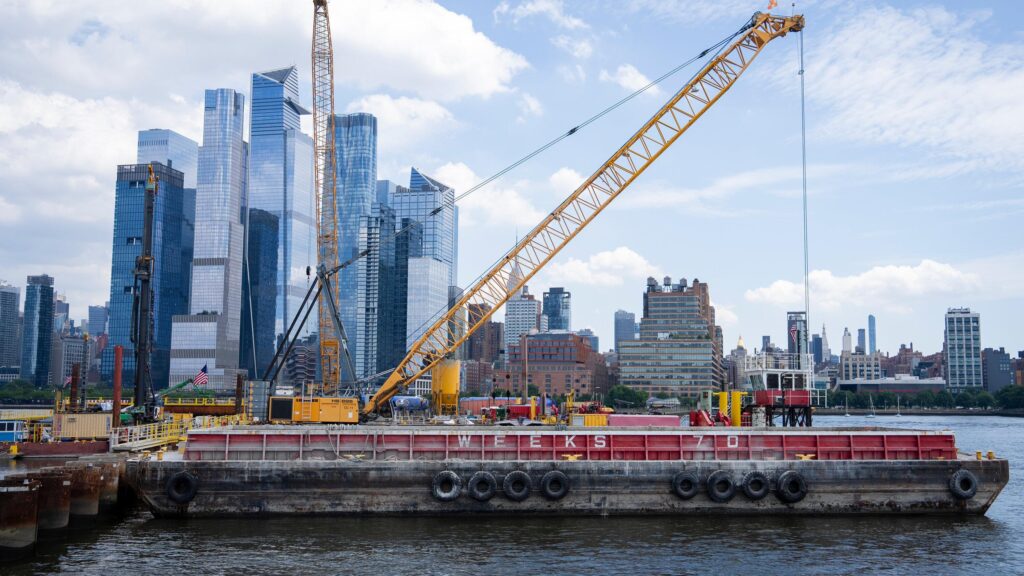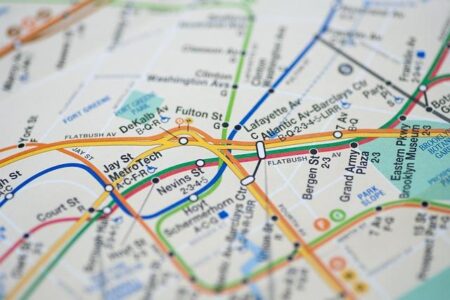Federal-State Conflict Intensifies Over New York City Transit Funding
Political Dispute Halts Billions in Transit Investments
This week, tensions between the federal government and New York State escalated sharply as state Democratic leaders accused former President Donald Trump of intentionally blocking billions in federal funds designated for New York City’s public transportation system. Officials argue that this funding freeze is a retaliatory measure linked to the city and state’s opposition to Trump’s policies and rhetoric, rather than a legitimate budgetary decision. The suspension of these critical infrastructure dollars threatens to stall projects essential to the daily commute of millions and highlights the deepening political rift between Trump and New York’s political establishment.
State Officials Highlight Risks to Transit Projects and Economy
New York State representatives have voiced strong concerns over the federal funding freeze, emphasizing its potential to disrupt vital transit improvements. They contend that the withheld funds are crucial for maintaining and modernizing the city’s aging transit infrastructure, which supports one of the busiest metropolitan regions in the country. Key issues raised include:
- Endangerment of ongoing safety and accessibility upgrades
- Delays in capacity expansion projects designed to accommodate growing ridership
- Potential job losses in the transit sector due to stalled investments
| Funding Withheld | Estimated Project Delays | Economic Impact |
|---|---|---|
| $2.5 billion | Up to 18 months | Possible $500 million loss in jobs |
| 10 major projects stalled | Delays reaching 2 years | Reduced efficiency for millions of commuters |
Federal authorities defend the funding suspension as a necessary step to address concerns over fiscal mismanagement. This standoff exemplifies the growing trend of partisan politics influencing federal-state funding decisions, raising alarms about the future of infrastructure projects nationwide if political retaliation becomes a standard practice.
Consequences for New York City’s Transit Infrastructure
The abrupt halt in federal funding has sent shockwaves through New York City’s transit system, jeopardizing critical infrastructure projects. City officials warn that essential repairs and upgrades—ranging from subway signal modernization to bus depot renovations—face indefinite delays. These projects are vital to improving safety, accessibility, and capacity in a system that serves over 5 million daily riders.
- Procurement of new trains and buses is postponed, worsening the strain on an aging fleet
- Station renovations aimed at enhancing commuter experience and ADA compliance are deferred
- Service disruptions during peak hours are expected to increase
| Project | Original Completion | Projected Delay |
|---|---|---|
| Signal System Upgrade | 2025 | +18 months |
| Bus Depot Renovation | 2024 | +12 months |
| Accessibility Improvements | 2023 | +9 months |
State Democrats characterize the funding freeze as a punitive tactic aimed at undermining New York’s leadership, warning that the consequences extend beyond transit delays to threaten economic vitality and commuter safety in one of the nation’s largest urban centers.
Accusations of Politically Driven Retaliation
Democratic lawmakers have publicly accused former President Trump of using the transit funding freeze as a form of political retribution. They argue that the timing and nature of the freeze—coming soon after New York’s outspoken criticism of Trump’s administration—indicate motives beyond fiscal prudence. The freeze imperils essential infrastructure upgrades and risks exacerbating economic challenges amid a fragile recovery.
- Interruptions to scheduled repairs on subway lines and bus fleets
- Rising unemployment in transit-related jobs due to project delays
- Setbacks in implementing accessibility upgrades for disabled riders
| Area Affected | Expected Outcome | Delay Duration |
|---|---|---|
| Infrastructure Repairs | Postponed subway and bus maintenance | 6 to 12 months |
| Employment | Increased job losses in transit sector | Immediate |
| Accessibility | Deferred ADA compliance projects | Over 1 year |
Critics stress the necessity of insulating infrastructure funding from political conflicts to ensure uninterrupted public services. State legislators have vowed to explore all legal and political avenues to restore funding and protect the transit needs of New Yorkers.
Advocating for Reform: Transparency and Oversight in Transit Funding
In response to the ongoing funding impasse, state Democrats and transit advocates are calling for sweeping reforms to federal transit funding processes. They argue that enhanced transparency and independent oversight are critical to preventing politically motivated disruptions that threaten essential infrastructure projects.
- Creation of an autonomous federal oversight committee to oversee transit fund allocations
- Mandatory real-time public disclosure of grant statuses and impacts
- Stricter conflict-of-interest regulations for officials involved in funding decisions
| Proposed Reform | Expected Benefit |
|---|---|
| Independent Oversight Committee | Ensures unbiased distribution of funds |
| Transparency Requirements | Enhances public awareness and accountability |
| Conflict-of-Interest Policies | Reduces politicization of funding decisions |
Conclusion: Navigating a Contentious Funding Stalemate
The ongoing dispute over billions in federal transit funding has placed New York City’s transportation future in jeopardy. State Democrats maintain that the freeze is a politically motivated act of retaliation by former President Trump, with serious implications for millions of commuters and the regional economy. As both sides remain entrenched, the resolution to this funding deadlock remains uncertain, leaving New Yorkers hopeful for a swift and collaborative solution that prioritizes infrastructure over politics.













